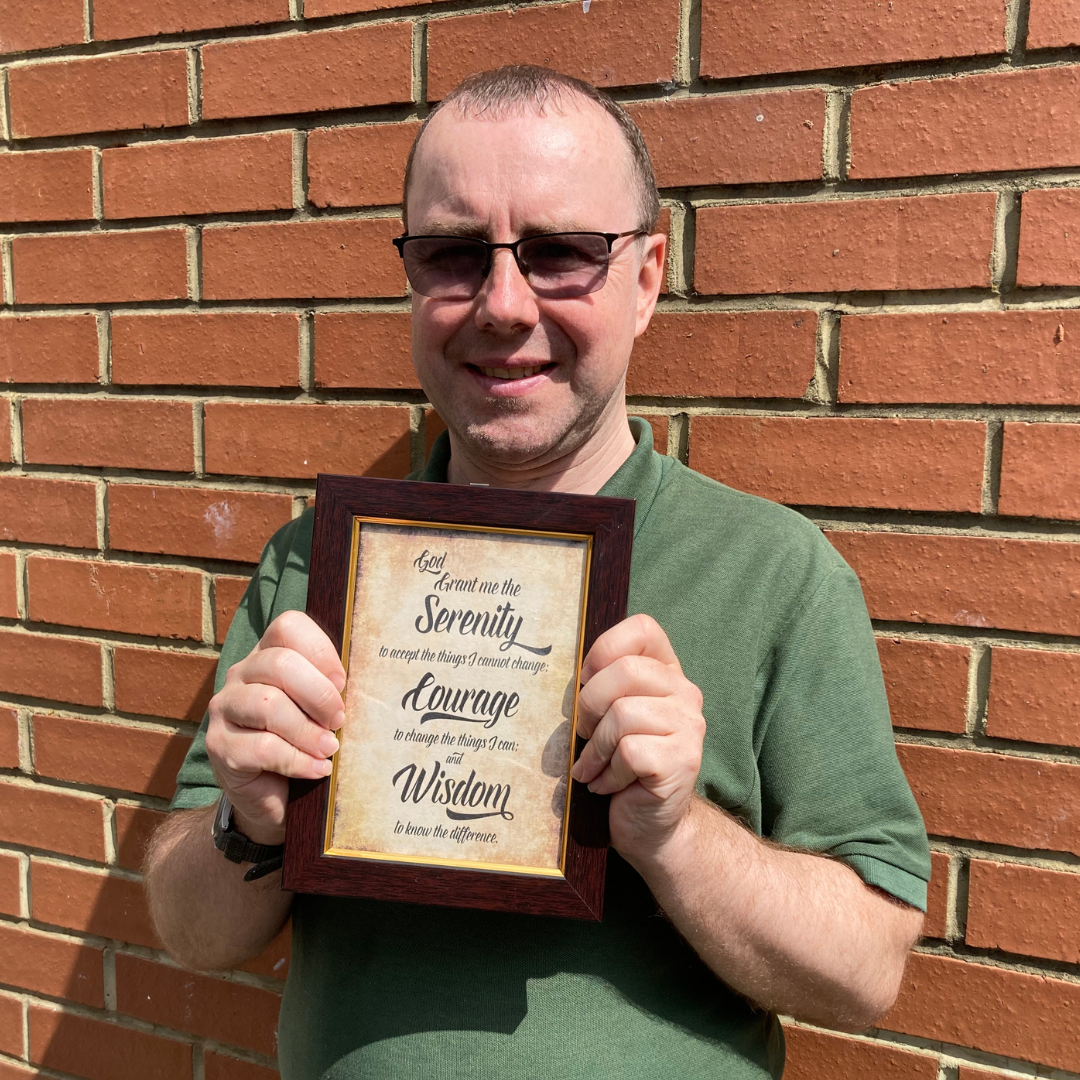Photo by Brian Moody
Dave Dineen first encountered sexual abuse at the age of seven. Through a stormy childhood he found himself placed in the care of a religious institution in Cork. His healing journey has been about learning to live with a difficult past.
From the age of seven, all I can remember is being abused by my mother – physically as well as emotionally. She was horrendous in her abuse and had no problem tearing up the stair rods to beat me with. At bath time she’d push my head under the water. But I was a fighter and I’d challenge her. My father was a bystander. He didn’t have a voice. He’d suffered from abuse in his own life, so in a sense it was normal to him. In the end my mother left him.
My brother, Mick, also physically, and sexually, abused me. At night we’d share a bed, and the abuse continued. So night time was as terrifying as day. One day my brother beat me so hard I had to go to hospital. I went four or five times until eventually I told them what was going on and at the age of 12 was put in an adult mental institution. If I thought the abuse was going to stop there I was wrong. In those days people were allowed to roam free and do what they wanted. Later on I was moved to a Catholic residential school where one of Ireland’s worst paedophile’s resided. He was rampant. This was a special school where society put children they didn’t want to see. My sense of shame flooded back.
The only person I confided in was my grandmother. So when eventually I was signed out of school at the age of 15, I thought it was because she’d been making a fuss, but years later I discovered it was my father.
As an escape I became heavily involved in drink and drugs and had my first child at 20. This was a key moment. Now I wasn’t just a drug dealer, I was a father, and I wanted to make sure that my son didn’t have the childhood I’d had. But it was hard to come off the drugs. Drugs suppressed the darkness I felt. And I looked at my son and thought, I don’t know how to be kind, or caring or how to love.
As I reached the age of 30, along the way I set up business and slowly backed out of crime. I had three children by now and I was adamant I’d be a good father, put food on the table and give them a clean house.
Then one day I received a letter from Islington Social Services in London looking for a member of the Dineen family. I went over immediately and learnt how my brother and his wife were heroin/crack addicts, and they had six children now in care. Two of these children had been spotted climbing out of the window of a flat where they had been left as collateral for a drug debt. As I listened to the story all the hurt and anger of my childhood came rushing back. So I set about looking for my brother – I intended to kill him. In London I made several visits to see the kids but I’d also look in every hostel and crack house. Six months later I brought the kids to Ireland but it was a year before I found my brother.
One day I came out of Camden tube station, walked down the side road and saw a woman sitting on the step whose face was very familiar to me – it was my brother’s wife. She looked gaunt and blue. Recognising her, I just screamed, “WHERE’S MICK?! TELL ME WHERE HE IS!” She got such a fright, she couldn’t answer, she could just point. In fact I’d walked right past him. He was a little further up the street, begging. Seeing my face, Mick’s head dropped and his hands fell to his side. I ran towards him, searching in my pockets and looking around for something to kill him with, but, as I reached him my rage subsided and I just put my two arms around him and brought him to close to my chest, whispering in his ear… “Mick, I forgive you.” And then I let him go.
I had no idea I’d react like that. But in my heart I was given a choice. There were two ways of looking at the situation, one would lead to despair and darkness and the other to light and peace of mind. I took the road of light. It was an instant decision, a moment of opportunity and grace.
I saw Mick one last time after that. He came back to Ireland to see his children, but later died of a heroin overdose in Ireland.
People can be freed from abuse. The media cover it by using stories of darkness and compensation, but I’ve always believed there is a way out of the darkness. I’ve been down so deep in the darkness – the pain, rage, self-medication and addiction – that I know there is a way out.
I dislike the term “victims” because it places a weight on people. By choosing forgiveness we can heal and let go and maximise our potential.

